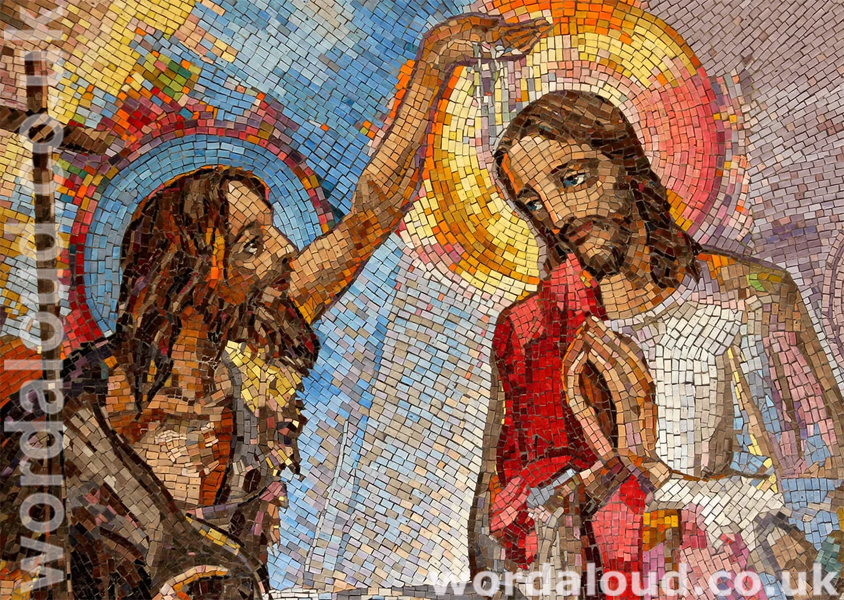Christian Art | Jonathan And David | Spiritual Love And Friendship | Christian Faith
Office Of Readings | Week 12, Wednesday, Ordinary Time | A Reading From The Treatise Of Saint Aelred On Spiritual Friendship | True And Perfect Friendship | Jesus Christ
‘True, perfect and enduring friendship in Jesus Christ.’
Historical And Monastic Context
Saint Aelred was a 12th-century Cistercian abbot who lived within a spiritual tradition that emphasised both community life and the inner journey to God. His reflections on friendship are deeply shaped by Cistercian ideals of caritas—a love that is disinterested, holy and rooted in the life of Christ. Unlike worldly friendships based on advantage or pleasure, spiritual friendship seeks what is good for the other in God. It is a school of charity, a training ground for grace.
In constructing his argument, Aelred draws heavily from the Roman philosopher Cicero’s De Amicitia, adapting its classical ideal of virtue-based friendship and transforming it through the lens of Christian revelation. For Aelred, friendship does not merely mirror virtue—it is a vehicle by which one becomes holy.
The Biblical Model | Jonathan And David
The friendship between Jonathan and David, found in 1 Samuel, is the foundation of Aelred’s reflection. Jonathan, though the rightful heir to Saul’s throne, sets aside ambition and claims no privilege over David, recognising God’s will and aligning his loyalty with righteousness. In saying, ‘You will be king, and I will be next below you,’ Jonathan shows not just affection but spiritual maturity. He chooses self-emptying love (kenosis) over personal gain, prefiguring Christ’s own words: ‘Whoever wants to be first must be the servant of all.’
Jonathan’s loyalty withstands tests of family pressure, political threat, and personal cost. Saul’s furious attempts to stir up jealousy and resentment in his son are in vain. This steadfastness under persecution models the unchanging nature of true friendship, rooted not in shared interest but in shared devotion to God’s will.
Theological Dimensions Of Friendship
For Aelred, friendship is a path to sanctity. It is not merely permissible within the Christian life—it is indispensable. Citing John 15, where Jesus calls his disciples ‘friends’, Aelred sees friendship as the natural state of those who live in Christ. This echoes Saint Gregory of Nyssa’s view that the Christian life must be fully conformed to Christ in thought, word and deed—something that deep friendship helps cultivate.
Moreover, friendship is sacramental in a broad sense—it reveals and participates in divine love. The Eucharist, the sacrament of unity, can be seen as the liturgical culmination of spiritual friendship, binding believers together in the one Body of Christ. Aelred’s emphasis on loyalty and mutual upbuilding finds resonance in the communal dimensions of liturgical life.
A Countercultural Witness
Aelred’s vision also speaks prophetically to our own era. In a culture marked by transactional relationships and digital connectivity, spiritual friendship challenges us to slow down, be present, and love without condition. It demands vulnerability, constancy, and forgiveness. It is a discipline of soul as much as a delight of the heart.
His insistence that true friendship cannot be broken even under abuse or misunderstanding holds a particular relevance in an age of fleeting alliances and shallow bonds. Christian friendship is enduring because it is grounded not in utility or pleasure but in God.

A Reading From The Treatise Of Saint Aelred On Spiritual Friendship | True And Perfect Friendship | Jesus Christ
That outstanding youth, Jonathan, son of King Saul, made an alliance with David, but it was not in the hope of obtaining the royal crown or winning the kingdom. For the sake of their friendship, he set David above himself as if he had been his master and not his own father’s servant, expelled, hiding in the desert, sentenced to death, destined for execution – he abased himself and raised David up: You will be king, he said, and I will be next below you in rank.
What an excellent example of true friendship! What a wonder! The king was raging against his servant and stirring up the whole country as if against a pretender to the throne. He accuses priests of treachery and has them killed on the mere suspicion – he has the forests and the valleys searched – he posts armed guards on cliffs and mountains. Everyone swears to punish the object of the king’s anger; but Jonathan, who alone has the right to envy the designated successor to the throne – Jonathan chose to resist his father, keep his friend supplied with news, give him counsel in his adversity. Thinking it better to be a friend than a king: You will be king, he said, and I will be next below you in rank.
See how the father tried to make the young man envy his friend, how he goaded him with insults, threatened him with dispossession, and warned him of the honours he would lose. But even when Saul had condemned David to death, Jonathan did not fail his friend. ‘Why should David die? What has he done wrong? What has he done? It was he who took his life in his hands and struck down the Philistine – you rejoiced, then. So why should he die?’
At these words the king was beside himself with rage and tried to pin Jonathan to the wall with his spear, pouring out new insults and threats. ‘Son of a wanton and lascivious woman! I know that you love him, to your own shame and the shame of your shameless mother!’ Then he poured out on the young man all the venom he had in him. He tried to stir up ambition and envy, bitterness and jealousy in Jonathan’s breast: As long as the son of Jesse lives, your kingdom cannot be established.
Who would not have been moved to jealousy by these words? Whose love would not have been corrupted, grace diminished, friendship wiped out? But this most loving youth held fast to the oaths of friendship he had sworn, stood up to the threats, endured the insults, and disdained the kingdom for the sake of friendship, careless of the glory he would miss but mindful of the integrity he would keep. You will be king, he said, and I will be next below you in rank.
Here is a true and perfect friendship, solid and eternal: a friendship that envy does not corrupt, suspicion does not diminish or ambition wipe out. It does not cease even under such a trial; even under such a battering it does not collapse. Assailed with abuse, it stands firm; beaten with insults, it does not bend. Go thou, and do likewise.
Prayer With Jesus
Lord Jesus Christ, You called your disciples friends, and showed us the way of perfect love. Grant us the grace to form friendships that reflect your fidelity, friendships unshaken by envy, ambition, or fear. May we, like Jonathan, uphold one another in truth, and like David, cherish the loyalty that comes from you. Let our friendships be schools of charity, where we learn to love as you love. Unite our hearts in your peace, that we may journey together toward the fullness of your kingdom.
Amen.
Glossary Of Christian Terms
- Cistercian: A Roman Catholic monastic order known for its emphasis on austerity, simplicity, and community life.
- Caritas: Latin for Christian love, especially selfless love that seeks the good of the other.
- Kenosis: Greek term meaning ‘self-emptying’; refers to Christ’s humility and renunciation of divine privilege.
- De Amicitia: A classical Roman treatise on friendship by Cicero, widely influential in the medieval Christian understanding of virtue-based relationships.
- Hesed: A Hebrew word often translated as loving-kindness or covenantal loyalty.
- Spiritual friendship: A Christian ideal of friendship rooted in shared pursuit of holiness and mutual love in Christ.
- Sacramental: In this context, something that reflects or participates in the grace and mystery of God’s love.
- Discipleship: The practice of following Christ in all areas of life, including relationships.
- Liturgical life: The public worship of the Church, especially the celebration of the Eucharist.








